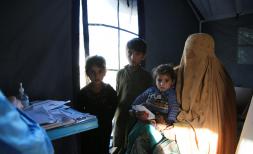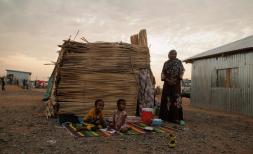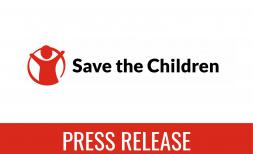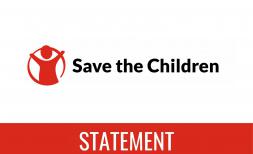One in five children in fragile states risk dropping out of school as COVID takes its toll: Save the Children
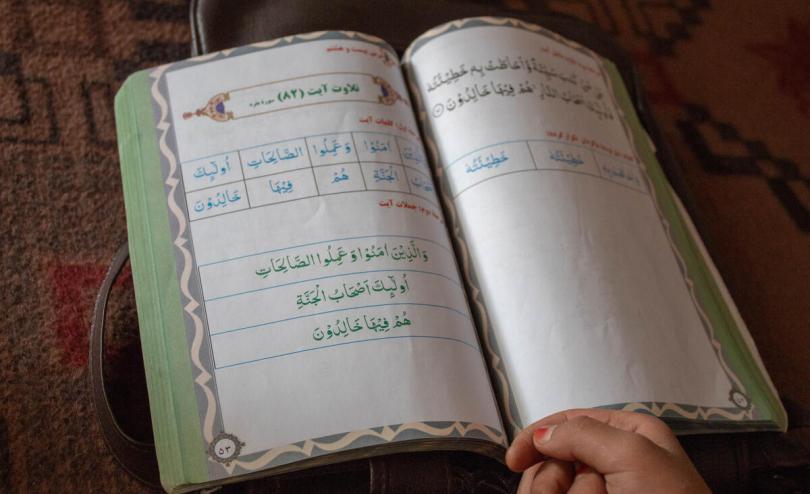
Millions of children have not returned to school in low-income countries after classrooms were closed by the COVID-19 pandemic, with up to one in five children missing out on an education, a new Save the Children school survey across six fragile countries reveals.
The survey—which was carried out in 625 schools in Afghanistan[1], Ethiopia, Malawi, Nigeria, Somalia, and Uganda—found that children are not returning to school because of child labour, child marriage and financial hardship, which have only worsened with the pandemic. This is compounded by fears of catching the virus and a lack of personal protective equipment (PPE).
With very little data available on the number of children who are out of school as a result of the pandemic, Save the Children’s report COVID’s Educational Time Bomb: Out of School Children Global Snapshot reveals that more than 20% of students surveyed are at risk of dropping out for good with potentially devastating consequences for their future. With school closures still occurring, the number of children dropping out is likely to rise. More than 90% of schools said there are children in their community who could be attending school, but are not.
Being in school can protect children from various forms of abuse and exploitation, and provide children with nutritious food, a safe place to play and have fun, and a sense of hope for their future. The most vulnerable children – including girls, children from low-income households or living in rural areas, and migrants and refugees – are at the greatest risk of dropping out due to the pandemic, according to data from the snapshot survey.
Although school closures and disruptions have affected all children, the impact has been far greater for children in low-income countries, as some lost 20% more of their lifetime schooldays during the pandemic compared to other children.[2]
In certain countries, girls are at particular risk of dropping out compared to boys, with many forced into child marriage and out of school. In Uganda, 52% of students who have dropped out are girls – and with fewer girls than boys enrolled in school even before the pandemic, this worsens existing inequalities in the country.
Up to 10 million more girls are now expected to marry by 2030 as a result of the pandemic.[3] Child marriage is a violation of children’s rights that robs girls of their childhood. The practice disrupts their education and can take a heavy toll on children’s mental health.
Save the Children is warning that unless urgent action is taken, the COVID-19 pandemic will continue to reverse important educational gains made in the last 20 years.
Jasmine Jahromi, Team Leader for Save the Children’s Safe Back to School Initiative, said:
“Although schools are reopening around the world, not all children are returning. In fact, we’re seeing the complete opposite in many countries. This snapshot survey gives us an insight into the long-term implications COVID-19 is having on children’s education in these countries. Although the 20% dropout rate only applies to the schools surveyed, if replicated globally, we're looking at potentially tens of millions of children never returning to school due to the consequences of the pandemic.
“COVID-19 has already caused the largest disruption to education in human history, and its implications will continue for years to come without urgent action. The pandemic continues to push families into poverty, forcing many children into work or marriage, and out of school.
“We know the most vulnerable and marginalised children have already suffered the greatest educational loss in the past 18 months, with little to no access to distance learning or education. Dropping out of school now will only set them further behind.”
Save the Children is calling on governments and donors to urgently invest in education now so that every child is supported in returning to school when it is safe to do so. Greater efforts are needed to tackle the specific barriers preventing the most vulnerable and marginalised children from returning to school, particularly girls, children from low-income households, children with disabilities, and migrant and refugee children. This can include cash transfers, school meals, catch-up classes, and mental health and psycho-social support.
Ms. Jahromi continued:
“We can do something to stop the pandemic’s education crisis from getting worse, but time is running out. The longer children are out of school, the less likely they will ever return to the classroom. We must act now and see governments invest in combatting the fallout before it’s too late.”
Notes to the Editor:
- Save the Children carried out a snapshot survey in six priority countries with fully or partially opened schools between May to July 2021, to gather information on how many students are out of school, who are they and why have they dropped out. The survey polled 625 schools in Afghanistan, Ethiopia, Malawi, Nigeria, Somalia and Uganda – approximately 100 schools per country. It is important to note that this is a snapshot survey and will act as a foundation for more comprehensive data collection. The figures in this press release and in the report are national extrapolations based on the findings from the surveys carried out in each country.
- According to the World Bank, of 720 million primary school-age children, 382 million are learning poor, either out of school or below the minimum proficiency level in reading. COVID-19 could boost that number by an additional 72 million to 454 million: https://documents1.worldbank.org/curated/en/163871606851736436/pdf/Learning-Poverty-in-the-Time-of-COVID-19-A-Crisis-Within-a-Crisis.pdf
For further enquiries please contact:
- samantha.halyk@savethechildren.org // +44 (0)74 235 19077
- Our media out of hours (BST) contact is media@savethechildren.org.uk / +44(0)7831 650409
- We have Jasmine Jahromi available as a spokesperson.
[2] In June, Save the Children released new research that found children in some of the poorest countries in the world had already lost up to 20% of their entire expected lifetime schooling:https://www.savethechildren.net/news/covid-19-kids-world%E2%80%99s-poorest-countries-lost-66-more-lifetime-school-richer-peers-save-children
